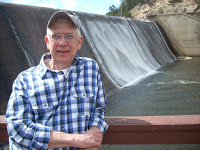Oh, I was religious. I was so religious that I attended Graduate Seminary pursuing a Master of Divinity degree in preparation for ordination into the ministry of the Christian Church (Disciples of Christ). I had decided to concentrate on aspects of religious education but found myself more intrigued with the social ethics professor’s offerings. The second course I took from Professor Richard A. Hoehn was called Morality. The first assignment was to write a short paper “How I Came to My Moral Concern.” I wrote something like this:
I am sure I did not conceive of my moral concern as a moral concern. I was reared in a church that assumed that moral concern flowed from religious concern. One sought to be religious; in so doing one would obviously be moral. Not that all believers were moral. More importantly I was taught to be moral at home where its teachings were part of the day to day activities.
Several family decisions of social location established moral contexts and assumptions that greatly affected my life. When my parents were planning to marry, they chose to build their house in the wrong part of town. It was perfect for them: a block from one set of parents, a block from the high school, three blocks from the church, four blocks from Hoyle’s IGA where dad worked, five blocks from elementary schools we kids attended. In the grocery store, all people were treated the same and the customer was, at least in most ways, always right. I grew up in a racially integrated neighborhood, attended integrated schools and classes from kindergarten through ninth grade in an army town where people spoke English, Spanish, German, and Japanese. I grew up knowing preachers and prostitutes, mechanics and madams, choristers and conmen, scholars and sleezes, farmers and fairies, musicians and musclemen, woodworkers and writers. For a kid growing up in a Kansas town of 20,000 population, my world was large. Whatever would become my sense of morality, it would always have to see this larger view of human connection.
Now to the topic of the day: My sexual identity is a part of my human identity, part of my moral identity, part of my Christian identity. I am a person, a nice person, and a religious person (at least in so far as I retain Christian thought in my overall views, Christian values in how I relate to the larger world). In summary, I am a Christian gay man who seeks the common good, (not just of my family, not just of my gay world, not just of my American world, but also of my place in the whole world). I reject any small view of homosexuality or bisexuality or of any of the sexual permutations of that larger term LBGTQAetc, or of queer. I am brother to all gay men and lesbian women and transgendered persons and poly-this-or poly-that folk, and to straight folk of all stripes whether I like or appreciate them or not or can understand anything any of them say. I’d appreciate their acceptance but don’t expect that to be given very freely. So I go on my way into the world and into my future, telling stories, making friends, tolerating, and hoping somehow to be tolerated. And I will continue telling my story as a part of all of you telling yours. I’ll keep smiling and, of course, hanging out with diverse convocations of others who care to get together in celebration of their differences.
Oh, I was religious; still am in an increasingly gay, queer way.
© June 4, 2018
About the Author
He also blogs at artandmorebyphilhoyle.blogspot.com



